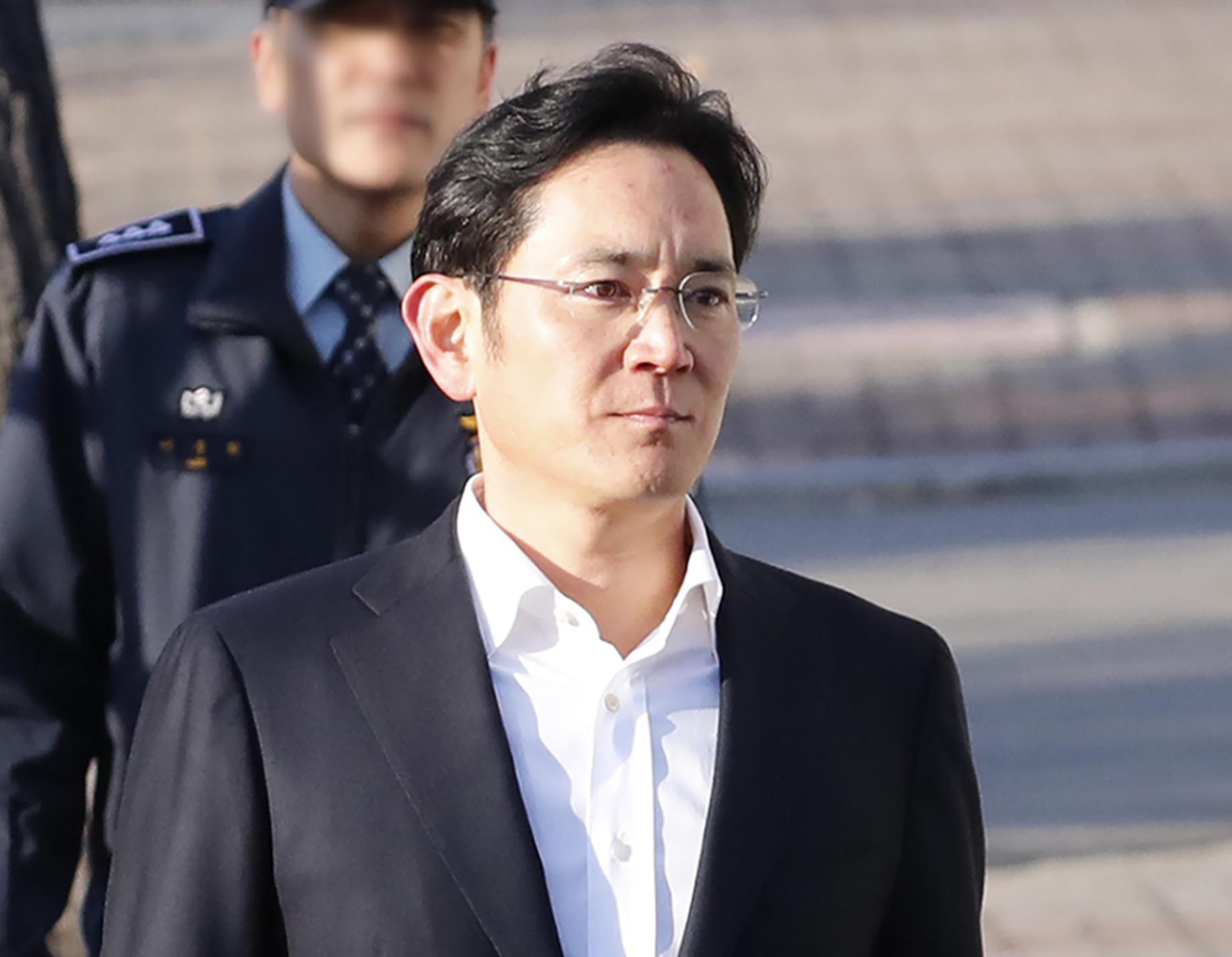Now granted parole, Samsung Group’s de facto leader Lee Jae-yong will be released from the Seoul Detention Center at 10 a.m. Friday.
His freedom, however, could be short-lived, as he is fighting two more criminal trials -- one on alleged accounting fraud and other offenses during a merger of two Samsung affiliates and another for his alleged use of the anesthetic propofol without a prescription.
He was behind bars for his conviction for bribing former President Park Geun-hye as part of a scandal that eventually led to Park’s impeachment in 2017.
If Lee receives a sentence of imprisonment, his parole will be canceled.
But a revision to the law, set to take effect in December, would prevent the cancellation of his parole. Under the new law, parole will be revoked only for crimes committed after release.
This means that even if Lee is convicted in the remaining cases after that point, he would only have to serve the new sentence.
Neither of the two cases, are anywhere near a final ruling.
The trial over the disputed 2015 merger between Samsung C&T and Cheil Industries, which began in October last year, is at the court of first instance.
Lee, whose official title is Samsung Electronics vice chairman, and around 10 other executives are facing charges including capital market law violations. The suspicion is the company executives planned and executed a series of illegal steps, including the merger of construction and fashion companies, to allow Lee, the eldest son of the late Samsung Group chairman Lee Kun-hee to obtain greater control over the conglomerate. The junior Lee is accused of knowing about and playing a role in the illegalities.
In a separate case, Lee has been indicted on charges of illegally taking propofol. Lee was initially fined 50 million won ($45,000) last month in a summary indictment, but prosecutors requested a formal trial, as they now believe he may have taken propofol more often. This leaves the possibility open for a heavier punishment against Lee.
Given the Samsung chief is on trial for these offenses, some politicians and civic activists question whether he was really suitable for parole.
Rep. Sim Sang-jung of a minority Justice Party on Monday strongly opposed Lee’s parole, saying it would undermine trust in the criminal justice system and become another abuse-of-power case.
Rep. Park Yong-jin, a two-term lawmaker of the ruling Democratic Party, voiced similar concern, saying by paroling Lee, the administration would be acting unfairly.
“It is unreasonable to consider that a person convicted of embezzlement needs to be granted parole for the sake of that company,” he quipped Monday, before the parole was announced.
Until recently, the Justice Ministry had a guideline that prisoners should serve more than 80 percent of their terms to become eligible for parole.
But in May, Justice Minister Park Beo-kye approved a revision that lowered the bar to 60 percent. This made Lee eligible, as he has completed just over 60 percent of his 2 1/2-year term.
Progressive civic groups also say that Lee’s parole is problematic given other ongoing trials.
Earlier this month 1,056 labor, rights and civic organizations expressed concerns that Lee’s parole could affect the course of separate ongoing trials.
Park Jeong-eun, secretary-general of the People‘s Solidarity for Participatory Democracy, a Seoul-based civic group, said that she cannot understand how parole has been even discussed, while there are two on-going trials.
(
ws@heraldcorp.com)







![[Today’s K-pop] Blackpink’s Jennie, Lisa invited to Coachella as solo acts](http://res.heraldm.com/phpwas/restmb_idxmake.php?idx=644&simg=/content/image/2024/11/21/20241121050099_0.jpg)
